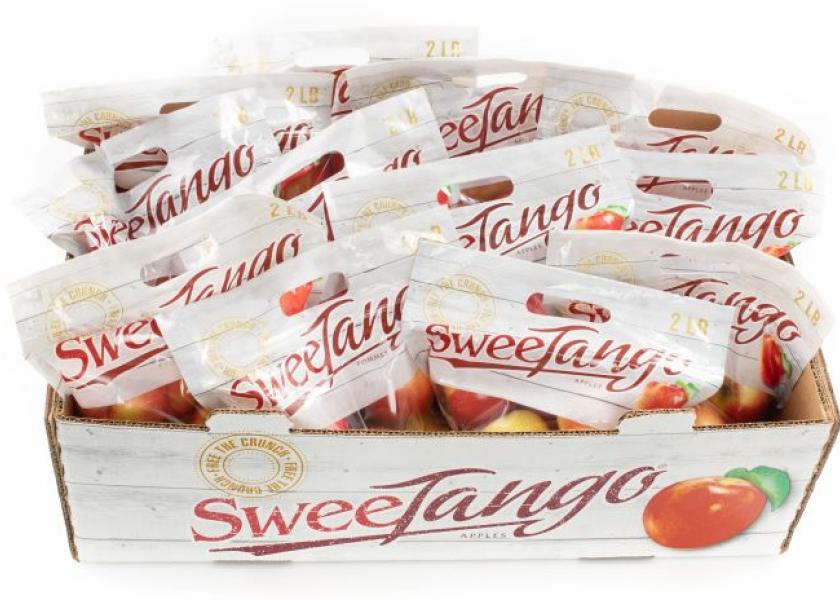Chilean SweeTango import season soon to start

It is SweeTango apple season again for Stemilt Growers.
In mid-March, the fruit marketer will start packing Chilean SweeTango apples at its packing facility in Wenatchee, Wash,, according to a news release.
The fruit arrives in orchard bins direct from Frusan, a partnered grower in Chile, according to the release.
“It’s all about freshness when it comes to our import SweeTango apples,” Brianna Shales, senior marketing manager at Stemilt, said in the release. “The fruit comes straight from Frusan via the port to our facility. We pack SweeTango to order on our optic line so that freshness is evident everywhere, from the wax to the sticker and the apple itself.”
Stemilt, according to the release, will pack and sell in excess of 80,000 cartons starting in mid-March; the import SweeTango program is expected to last about eight weeks. The fruit will have a SweeTango branded PLU sticker, with Chile identified as the country of origin.
In addition to bulk fruit in standard and euro cartons, Stemilt said it also will offer SweeTango in its two-pound pouch bags.
“As growers-packers of SweeTango, we understand exactly what the fruit needs after harvest to maintain its color, quality, and to develop its well-known and loved flavors,” Shales said in the release.
Nielsen retail scan data shows SweeTango is among the top five trademarked apples during the August to December period, according to the release, and could climb the charts in future years. SweeTango also commanded an average retail price of $2.41 per pound, according to the release.
“SweeTango has always enjoyed great consumer demand and performs extremely well at retail despite volumes being lower than many other trademarked varieties,” Shales said in the release. “We’re excited to share more SweeTango with shoppers this spring, and look forward to a bright future for one of the best trademarked apples out there.”
Stemilt is a member of the Next Big Thing Growers’ Cooperative that has the rights to grow and market SweeTango apples, and future proprietary varieties. The University of Minnesota developed the apple, commercially introduced in 2009, as a cross between the Honeycrisp and Zestar! apple varieties, according to the release.
Related articles
Apple volumes up for second month in a row







